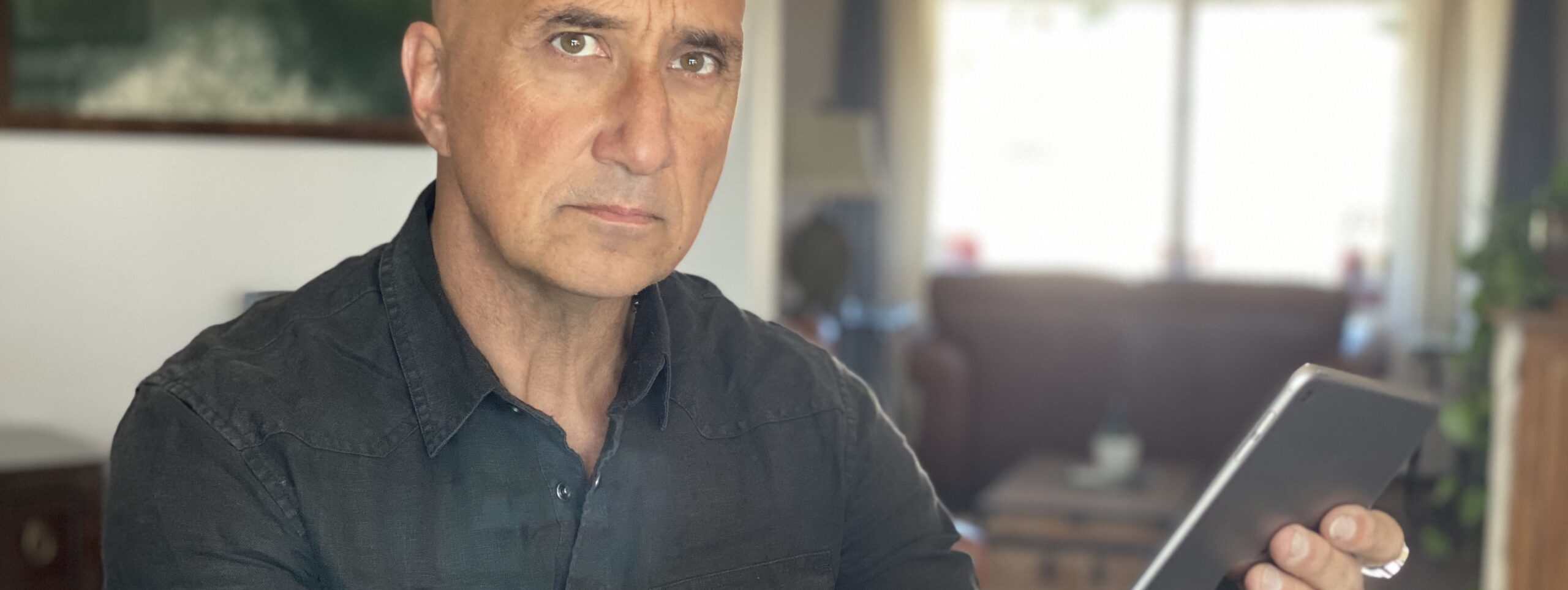The Lessons In Manliness are a series of short reflexions on how a middle-aged man can regain his manliness and sense of self. Those lessons are based on the 5 tenets of my program:
- Stay Strong
- Stay Sharp
- Stay Healthy
- Stay Safe
- Stay Manly
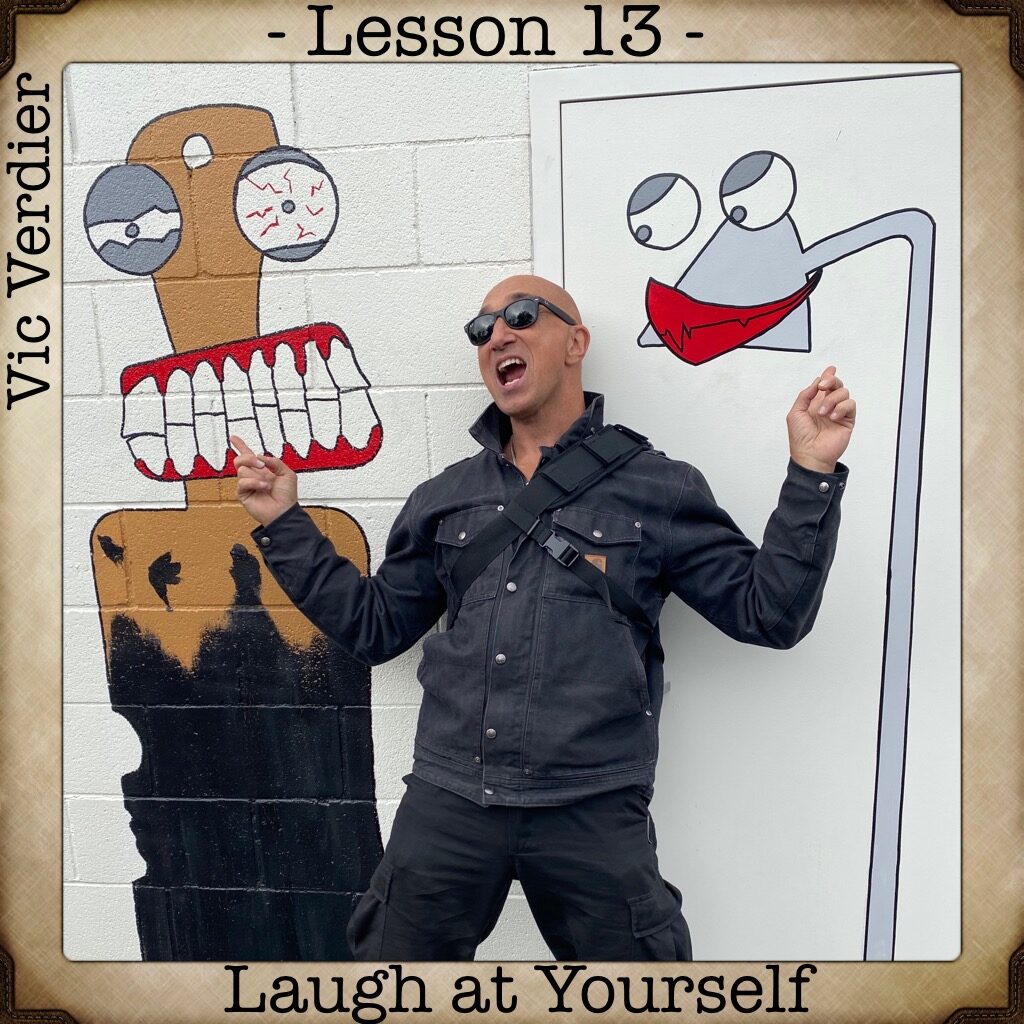
– Lesson 13: Laugh at yourself
Humans haven’t always worried about their long-term future. Most anthropologists agree that it only appeared with the Agricultural Revolution, 10,000 years ago, planning next year’s harvest. Before that, our Hunter-gatherer ancestors didn’t worry about investment, mortgage, or career. For most of our presence on Earth, humans focused on the basic needs of nutrition, shelter and safety, and their immediate future, today, in a few days or a few weeks. We forget that most basic needs are easily fulfilled in the modern world, and we worry more about needs that depend on others or long-term goals. Marcus Aurelius, the Stoic Roman emperor, advised separating the things we cannot control, like large events, on what people think of us or do to us, from the things we can control, like our reaction. Whenever we can, let’s laugh at ourselves for worrying about the many things we have no control over. Laughing is the perfect de-stressor we all need.
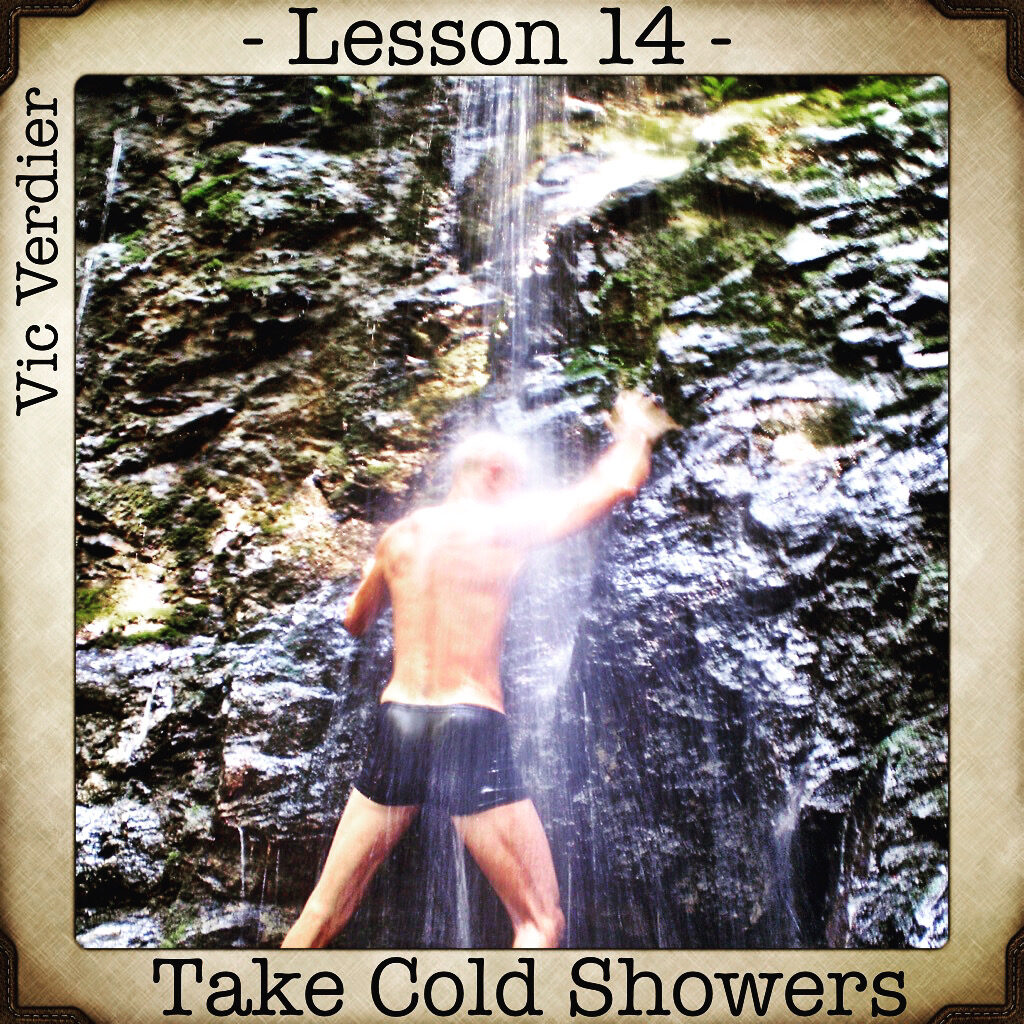
– Lesson 14: Take Cold Showers
Cold showers and cold baths have been back in fashion, along with cryotherapy. Many articles promote the health benefits of being exposed to the cold, as a way to boost your metabolism, strengthen your immune system and your cardio-vascular system, and improve your ratio of brown fat/white fat. Those benefits have been known since the dawn of time, and have been experimented and adopted in many cultures around the world. Spending many years of my life teaching scuba diving in tropical water, I’ve never been a big fan of cold water immersion, so the main benefit for me is about expanding my comfort zone and improving my resilience. There is something about getting cold water on your skin that has nothing to do with just being cold. It’s not about fighting, it’s about acceptance and surrender. It’s about forging willpower and strength of mind. Something that anyone who lives in a climate-controlled environment and drives a climate-controlled car needs.
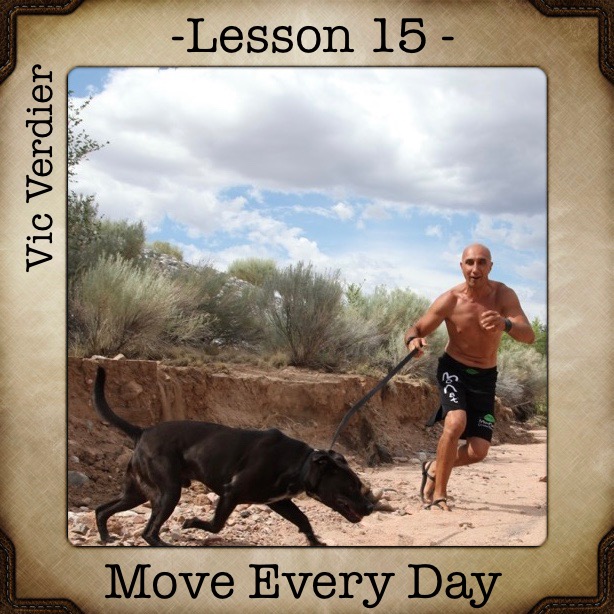
– Lesson 15: Move every day
There is no doubt we are becoming more and more sedentary. Most of us have jobs that involve long hours sitting in front of a computer. Our current concept of fitness is spending an hour at the gym, playing a sport twice a week, or jogging for 30 minutes every other day. But, the evolution of the human body has resulted in our ability to move in many different ways as well as having the capacity to move frequently, and often. It’s not about training hard, growing a tactical beard and wearing a cool t-shirt with a Spartan or Viking image. It’s about moving every day, alternating different modalities in order for the body to recover, while learning new skills. Just doing the same thing, harder, heavier, faster, is a sure path to injuries and burn out. “Specialization is for insects” said Robert Heinlein. Lift one day, run the next day, climb the following, and simply walk or play on the fourth day. It’s not just about numbers going up at the gym, it’s about having fun and letting the body express itself in as many different ways as possible. The goal is to do something EVERY DAY.
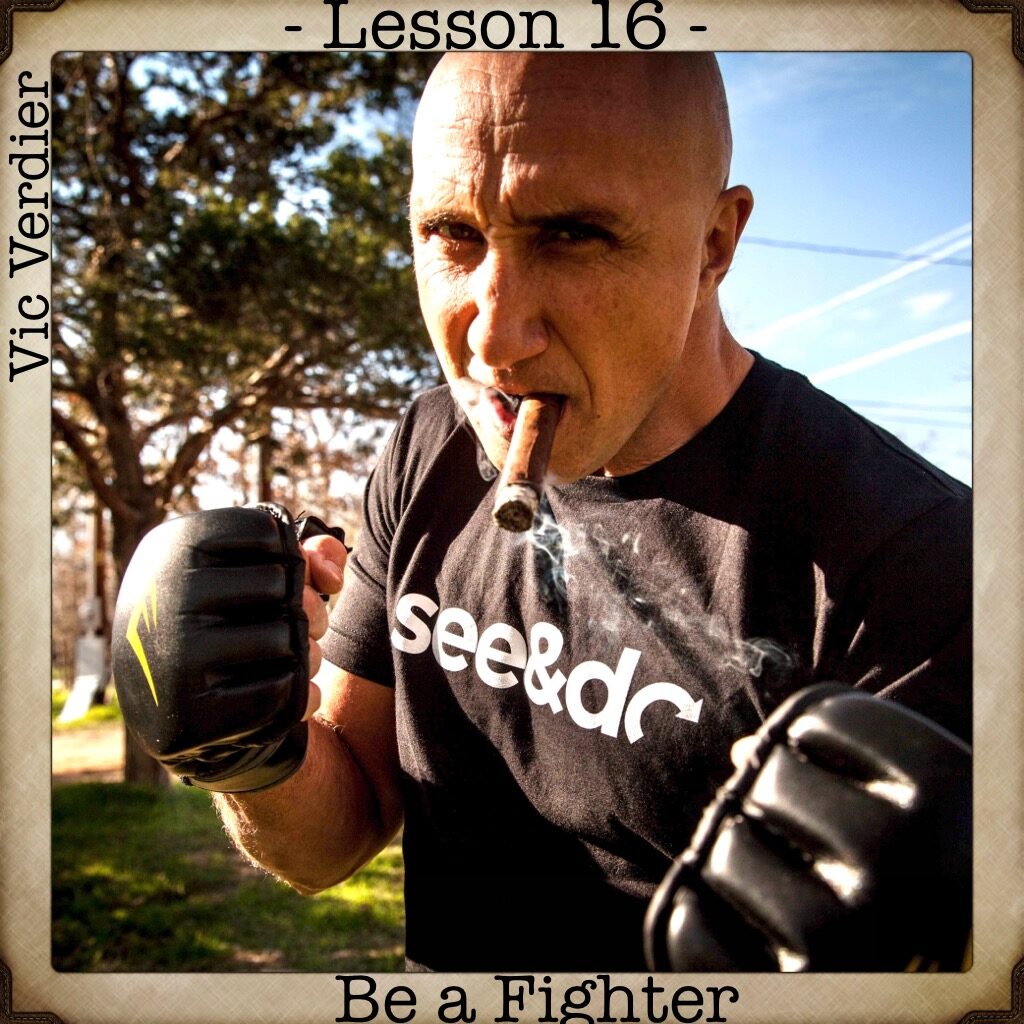
– Lesson 16: Be a Fighter
Being a fighter has nothing to do with being a badass or a warrior. It’s not about being an aggressive jerk, ready to burst at the first opportunity for road rage. The guy who is all amped up when someone spills his beer in a noisy bar, who puffs his chest and yells at the victim of his anger is not a fighter. He is someone who cannot control his emotions and feels so insecure that he has to display his strength and aggression in a monkey dance, the human equivalent of male dominance in the simian world. The real fighter’s attributes are diverse and essential. First and foremost, it’s all about being confident in their ability to avoid, defuse or control a situation. It means being calm and under control at all times, paying attention to what’s happening around them and how other people behave. Confidence and serenity come with skills and knowledge. It requires a clear mind and a cool temper, knowing that they can use violence efficiently if the need ever arises.
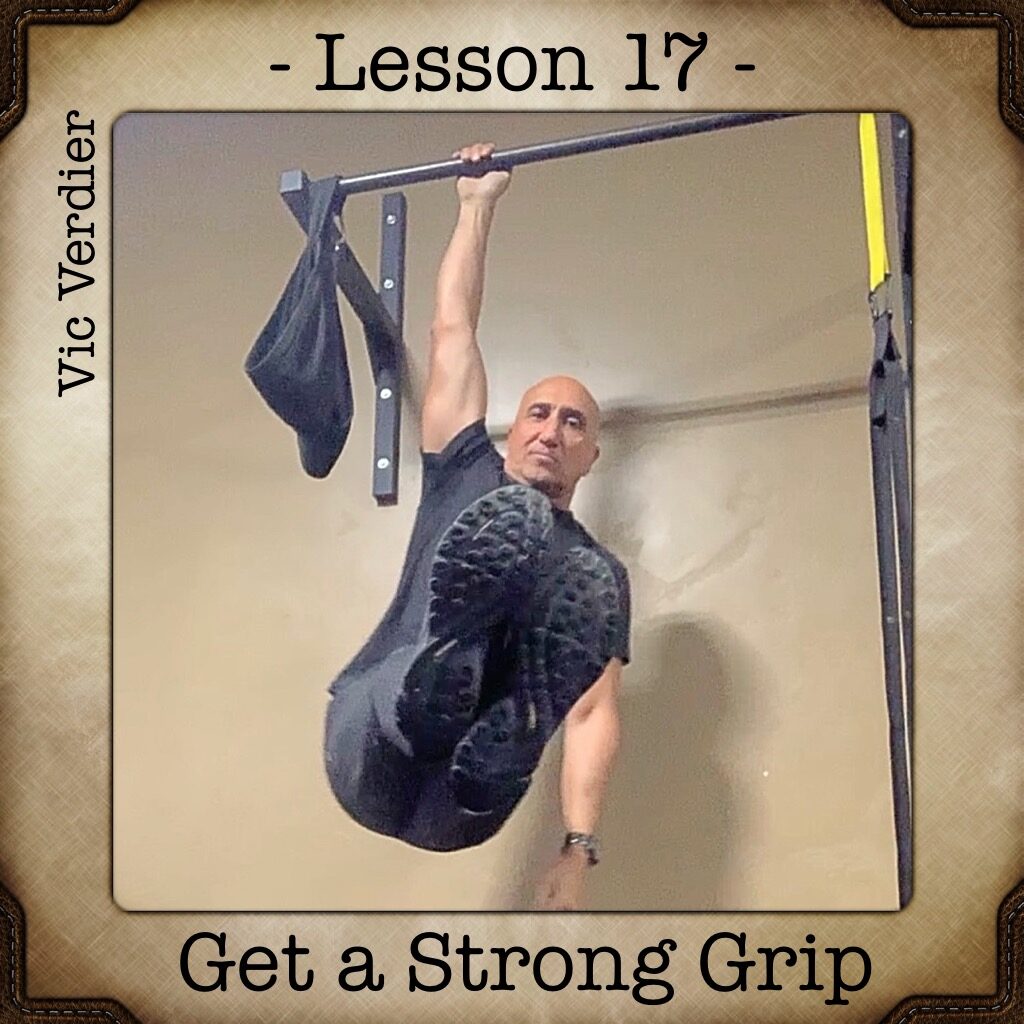
– Lesson 17: Get a Strong Grip
Fitness professionals have argued endlessly about which of the many metrics for strength are the most objective. But no matter which benchmark is the current favorite, one thing is true by all the standards, physical strength tends to decrease when men pass their 40s and 50s. One indicator of that unfortunate trend is grip strength. Our hands are very often what we use to physically interact with the world around us. Sometimes we need a high level of dexterity, sometimes a strong grip. A weakened grip is not only detrimental to our ability to climb, lift, carry, catch, fight, ski, hold our dog or steer a BMX, but some studies have shown a direct correlation between grip strength and longevity in older men. In a world where firm handshakes and hard-to-open jars are less frequent, some simple metrics both helps you stay vital and resilient and shows you what you need to work on: Can you hang on a pull-up bar for one minute, or Farmer Carry the equivalent of your bodyweight?
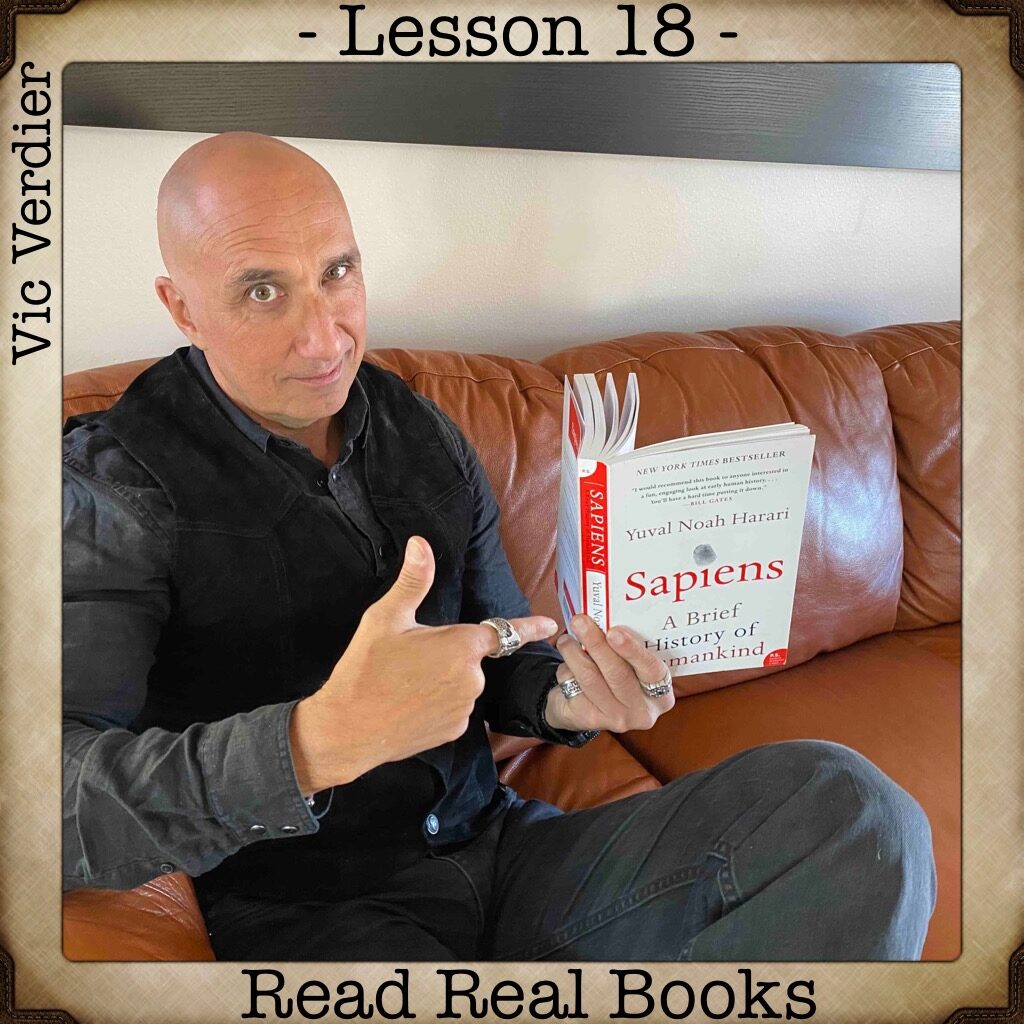
– Lesson 18: Read Real Books
The fast food/instant gratification culture has spread to so many areas of our life. We have never had access to so much information and knowledge but that doesn’t seem to make us wiser and more informed. Most of the things we read are easy to digest and easy to forget. Nothing fundamentally original, just carbon copy with no substance, just a nice package designed to catch the attention or shock those with a short attention span and no interest in reconnecting with the lost art of reading anything longer than a page. Real thinking comes from reading real books, not just short articles online. Make the effort to read non-fiction books, essays, and biographies of great men and women. Appreciate the work of the authors who spent months, if not years putting their thoughts into words on paper. If your wisdom comes from stupid memes, guess how is your wisdom…
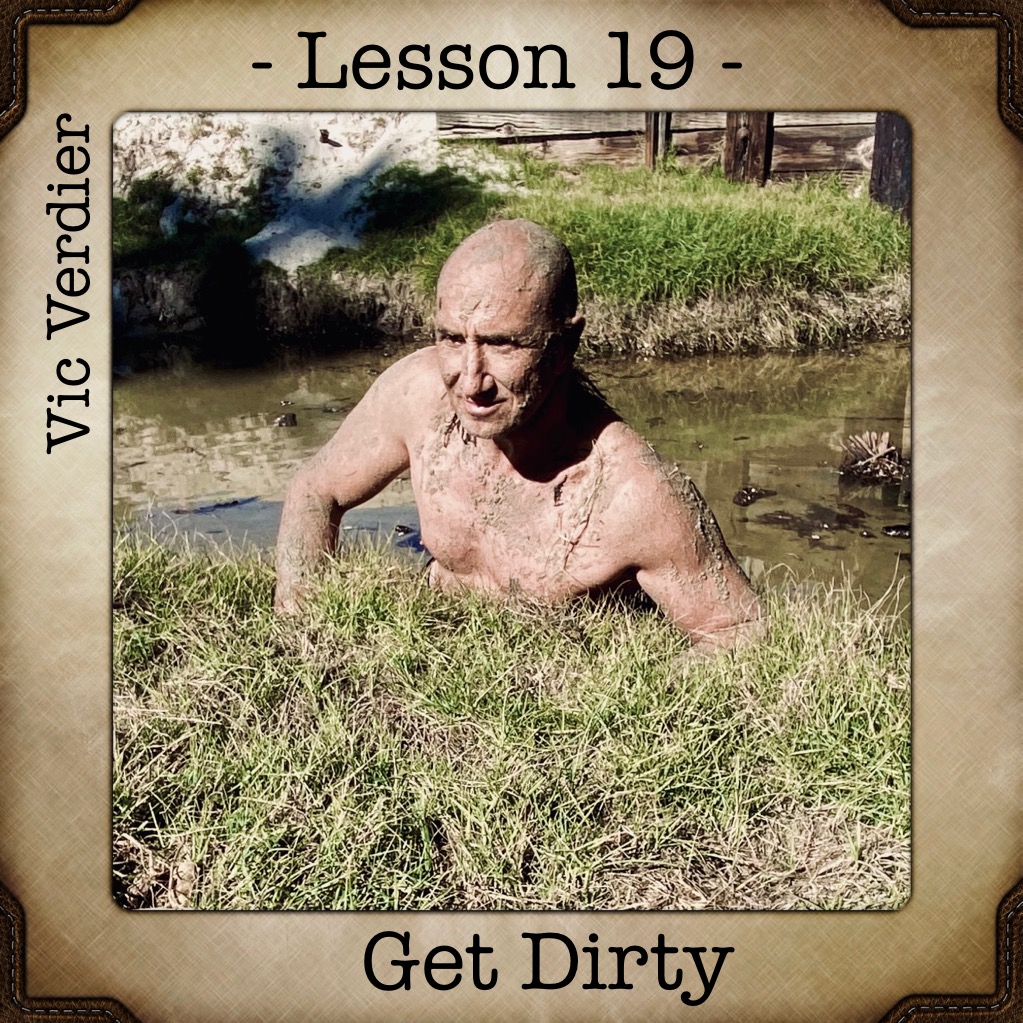
– Lesson 19: Get Dirty
Our past has always given us an interesting perspective on our present. We spent hundreds of thousands of years being comfortable in nature, soaking our bodies in sunlight and keeping in close contact with soil, dirt and nature. In the last hundred years, science has progressed, giving us the tools to avoid major infections when we are injured. Advancements in basic hygiene and targeted drugs have helped efficiently fight common diseases that killed many people just a short century ago. But pushing things to the extreme ends up in societal neurosis, making us paranoid about everything that could be remotely bad for our health. Sanitizing everything is not better than sanitizing nothing. It weakens our immune system and makes us less able to fight pathogens without the help of specialized medications. Slowly build your immune system back up, and improve its strength resilience by spending more time outside, by getting closer to nature, by getting dirty, muddy and wet, and by being less stressed about our natural environment. Nature and germs are not our enemies.
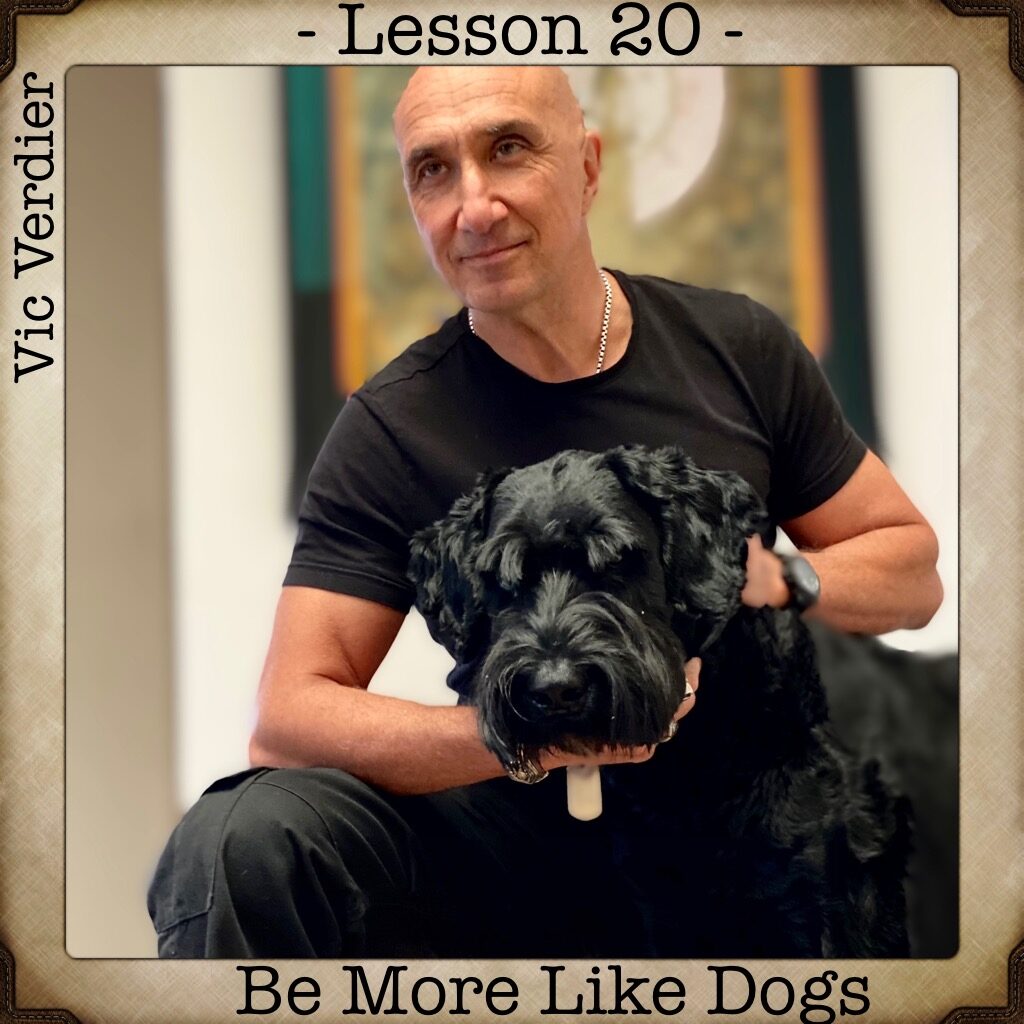
– Lesson 20: Be More Like Dogs
The domestication of humans’ best friend probably happened around 20,000 years ago, well before any other animal, and this long term relationship had a profound impact on the evolution of both our species. We train dogs, trust them, love them, and depend on them in many aspects of our lives. We don’t often think of them as a role model, but we should. For instance, healthy dogs are happy and playful, even in their old age. They might not be able to move very well when they get older or badly injured but that usually doesn’t change their propensity to enjoy the day. Dogs learn lessons from the past but don’t worry about the future. They live and enjoy the present. They easily adapt to a new environment or weather – as long as there are no extremes. Finally, most, if not all, dogs are always faithful, regardless of the interaction with their human friend. As humans, we should work to have all those qualities that would make us so much happier.
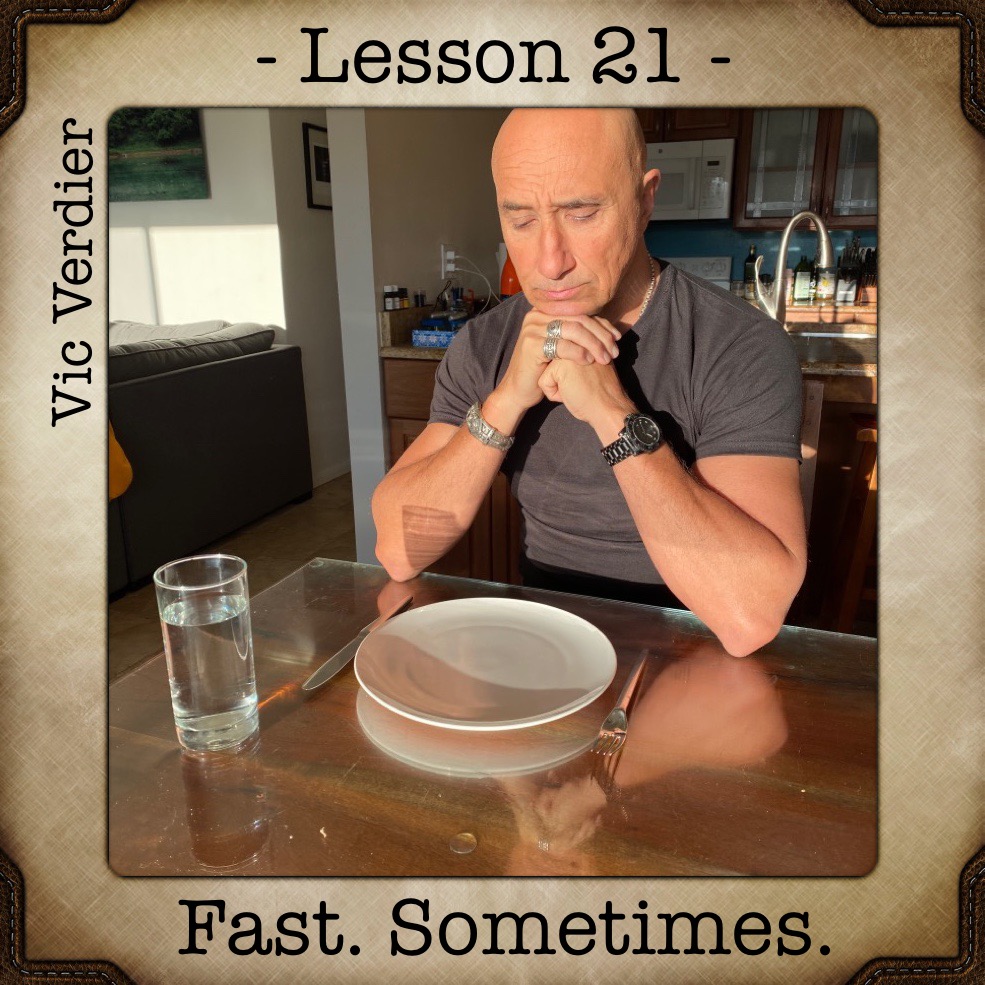
– Lesson 21: Fast. Sometimes.
We eat too much. We consume too much coffee, recreational drugs, alcohol, and sweet food. We spend too much time on our digital devices, binging on TV shows, social media, News, and video games. As usual, too much of a good thing is rarely better…unless we are talking about dark chocolate of course. The solution to our excess is moderation, but because everything in our modern life has been carefully designed to be highly addictive, moderation requires an uncommon level of discipline. Intermittent fasting recently gained some traction as a relatively easy solution to the overeating problem of the Western world. We could use a similar strategy for most of our other excesses: once a week, spend a day without coffee, tobacco, alcohol, soda, candies or any comfort food you enjoy so much. And once a week, disconnect completely, spend the day hiking in nature, meditating in bed or riding your motorcycle, without smartphone, smartwatch, TV, tablet or computer. Your brain and your mental health will thank you.
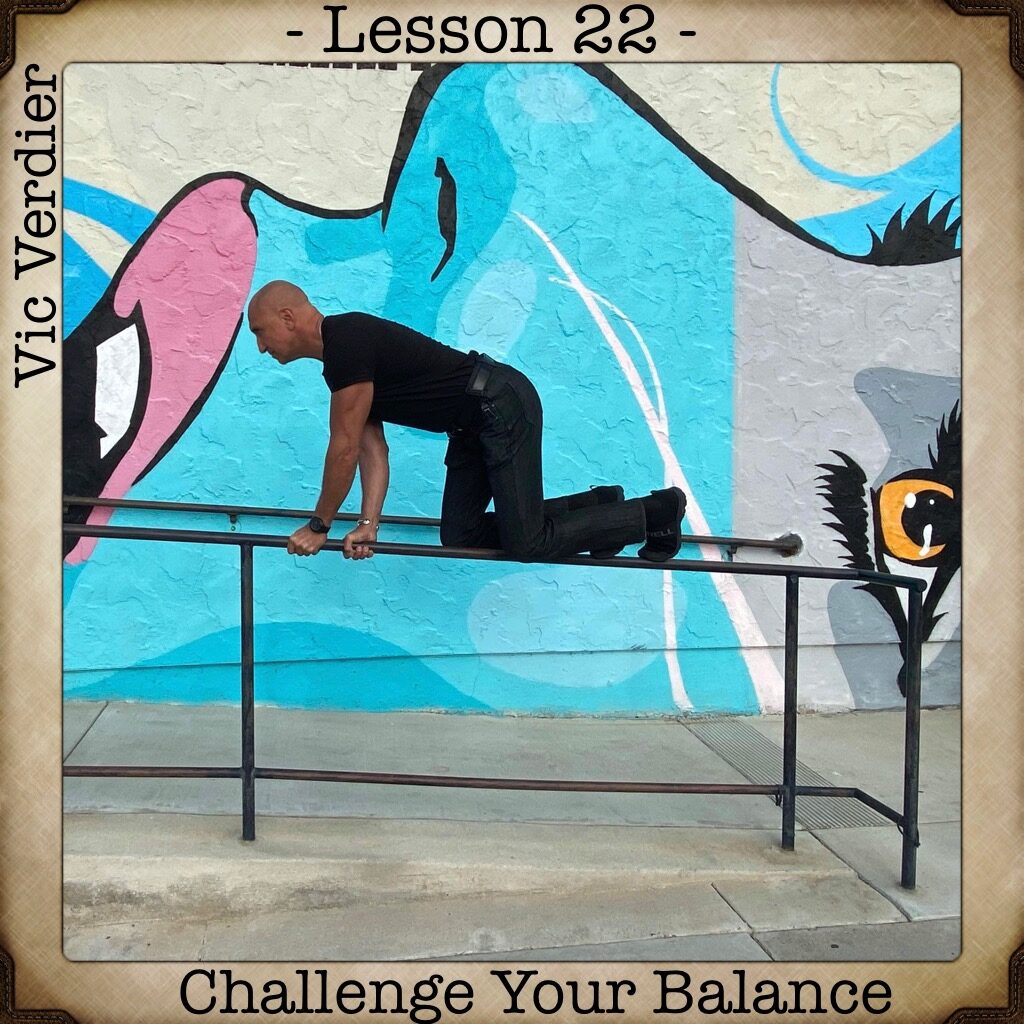
– Lesson 22: Challenge Your Balance
The things we don’t practice pays great dividends when we finally practice them. When it comes to physical training, everyone wants to do the sexy stuff – getting stronger, faster, more flexible – and put aside the seemingly mundane. A simple skill like balancing requires consistent work. We don’t really pay attention to it, but is the one we use all the time, unless we are lying in bed. Every time we stand, walk, run, play, move or exercise, balance plays an important role in the background. Toddlers fall because they are always constantly challenging their balance. Old people fall because they’ve stopped challenging their balance. Challenge yours daily and it will improve. Vary the surface you stand on, how small, or how stable it is. Explore different postures, moving out of the usual standing-on-two-feet position. Standing on one foot with your eyes closed for a minute is challenging for many people. Climb on an elevated object or a wall and see how it changes your perception and confidence in your balance. Add some balance to your daily life.
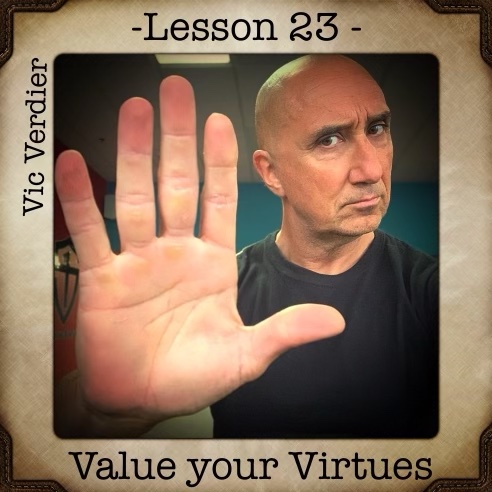
– Lesson 23: Value your Virtues
We’ve been told that a man who displays confidence is either arrogant or is just walling himself off to hide deep insecurities. True confidence, however, is merely a reflection of someone’s inner strength. Marcus Aurelius, the Stoic Roman emperor, wrote, “Waste no more time arguing about what a good man should be. Be one.” In difficult times, moral strength relies on strong principles and clear virtues. The Stoic virtues were Courage, Wisdom, Temperance, and Justice. Aristotle promoted his own set of virtues – Prudence, Justice, Temperance, and Fortitude – believing that a man’s purpose was to take actions that lead to excellence in every aspect of his life, guided by rational thought. More recently, Jack Donovan talks about the tactical virtues of Courage, Strength, Mastery, and Honor. Find your own virtues and live by them. At the end of the day, only you can decide what makes you the best version of yourself.
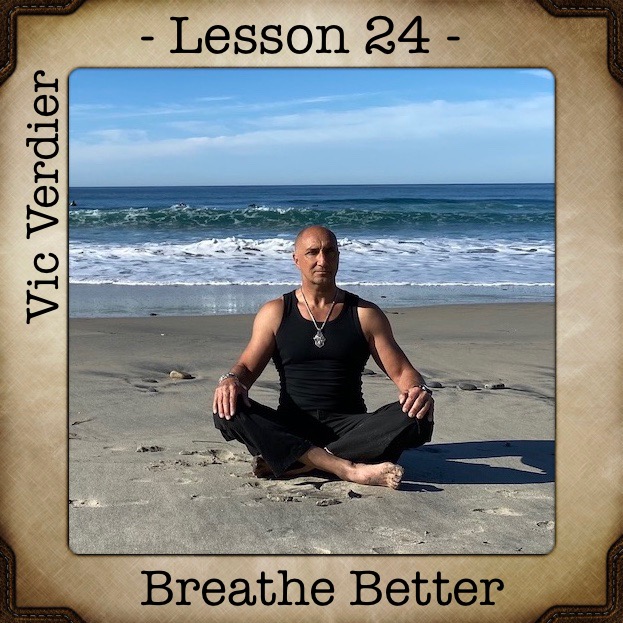
– Lesson 24: Breathe Better
Have you been thinking about breathing lately? Of course not. Breathing is so much part of our everyday survival and so automatically controlled by our autonomic nervous system, there is no reason to think about it… unless we need a bit of extra oxygen to supplement our physical activity. With between 17 and 23.000 breaths a day, make your breathing more efficient. Use your diaphragm, the most powerful of your respiratory muscles, instead of the smaller and weaker intercostal muscles. Nasal breathing helps our immune system by filtering out unwelcome organisms. Our nose and sinuses act as filters and humidifiers for our breath. Help them help you by making sure that every breath you take comes through your nose. Germs are like taxes: we can’t eliminate them completely, but we can do our best to deal with them properly. Sometimes it’s not about using sophisticated breathing drills involving straws, timers, and BDSM mouthpieces. Simply remember to pay attention to your most fundamental activity, the one you’ve been doing all your life… from your very first breath to your last breath. How we do it influences everything else.
